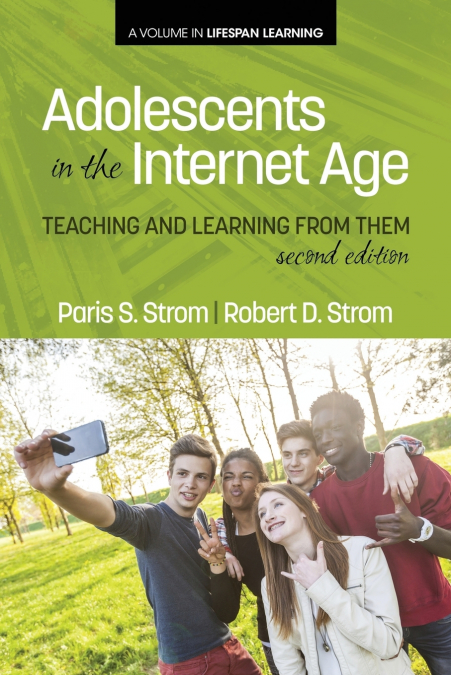
Paris S. Strom / Paris SStrom / Robert D. Strom / Robert DStrom
A volume in Lifespan LearningSeries Editors Paris S. Strom, Auburn Universityand Robert D. Strom, Arizona State UniversityTeaching adolescents and learning from them is the paradigm elaborated throughout this secondedition of Adolescents in the Internet Age. The premise is based upon four assumptions: (1) Adolescentshave unique experiences that qualify them as the most credible source on what growing up is like in the currentenvironment; (2) Adolescents are more competent than many adults with tools of technology that willbe needed for learning in the future; (3) Adolescents and adults can support mutual development by adoptingthe concept of reciprocal learning; and (4) The common quest of adolescents to gain adult identity couldbe attained before employment.Expectations are the theme for every chapter. The reason expectations are so important is becausethey influence goals, determine priorities, and are used to evaluate progress and achievements of individualsand institutions. When teacher expectations correspond with the abilities and interests of students,achievement and satisfaction are common outcomes. In contrast, if teachers expect too little, student potentialcan be undermined. There is also concern if expectations that students have for themselves surpass their abilities. This occurs if teachers do notinform students about their deficits. Multitasking, doing too many things at the same time, detracts from productivity. Sharing accountability dependsupon complimentary and attainable expectations that can be met by students, teachers, and parents. To support appropriate expectations, tthis book forsecondary teachers and high school students seeking a broader understanding of their own generation is organized in four parts about aspects of learningand development.(1) Identity expectations introduce traditional perspectives on adolescence, changes related to sources of learning, evolving emphasis ofschools, and ways to support motivation, goal setting, and formation of identity.(2) Cognitive expectations examine mental abilities, academic standards, emergence of the Internet as a learning tool, development of medialiteracy, creative problem solving, and encouragement of higher order thinking skills.(3) Social expectations explore the need for giving greater attention to social development,importance of teamwork skills, involvement with social networking, adoption of civil behavior,school safety, and values as a basis for ethical behavior and character.(4) Health expectations center on decisions that influence physical health, well-being, andlifestyle choice. Consideration is given to stress management, emotional intelligence, and risk assessmentstrategies for individual teenagers and the schools that they attend.